
As President Obama travels through Kenya and Ethiopia this week, I am reminded of the incredible Africans I have met who are transforming their communities and countries.
Over the past year, I have had the privilege of leading three fact-finding trips to Africa with members of Congress, retired generals, policy advisors, and leaders from the private sector. Together, we saw firsthand the invaluable work and impact of America’s development and diplomacy efforts in Ethiopia, Kenya and Tanzania.
Here are some of the highlights from our trips.
Empowering a Kenyan Dairy Farmer
During a visit to Eldoret, Kenya — made famous by international marathon runners — I met Noah and his wife Irene during a visit to his farm. Noah is a small-scale dairy farmer, who began partnering with USAID’s Feed the Future program just a few years ago.
What I saw was transformational.
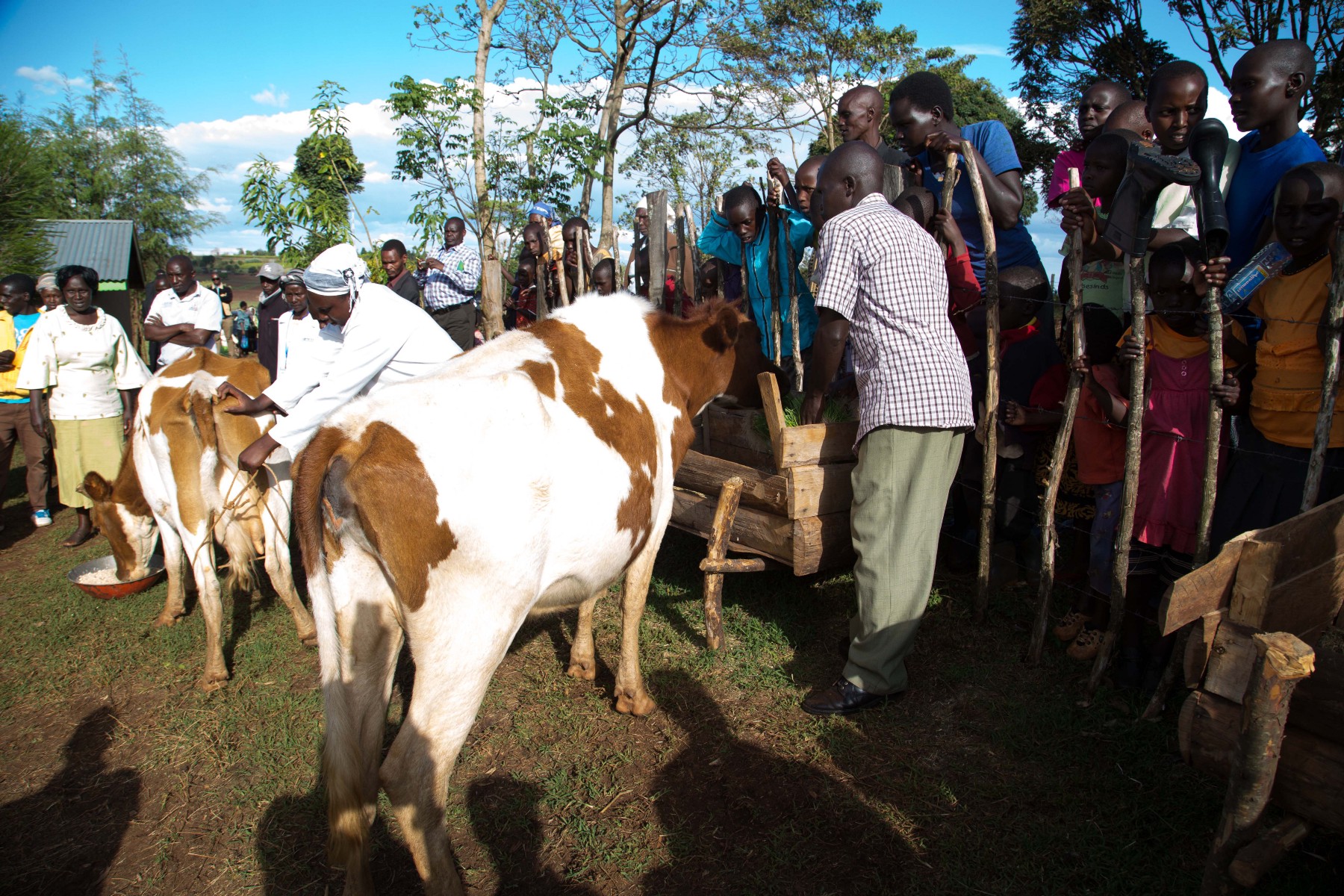
Noah, in the checked shirt, shared how the Feed the Future program has transformed the life of his family.
This new aid program wasn’t my image of handing out food to the hungry. Instead, it was empowering Noah and Irene with the tools they need to feed themselves — for life.
Through a translator, Noah explained how his two cows were not producing enough milk to feed his family, but after being trained on proper feeding, animal hygiene, and water delivery, Noah’s cows were not only producing enough milk for his family, but producing enough high-quality milk to sell in the marketplace.
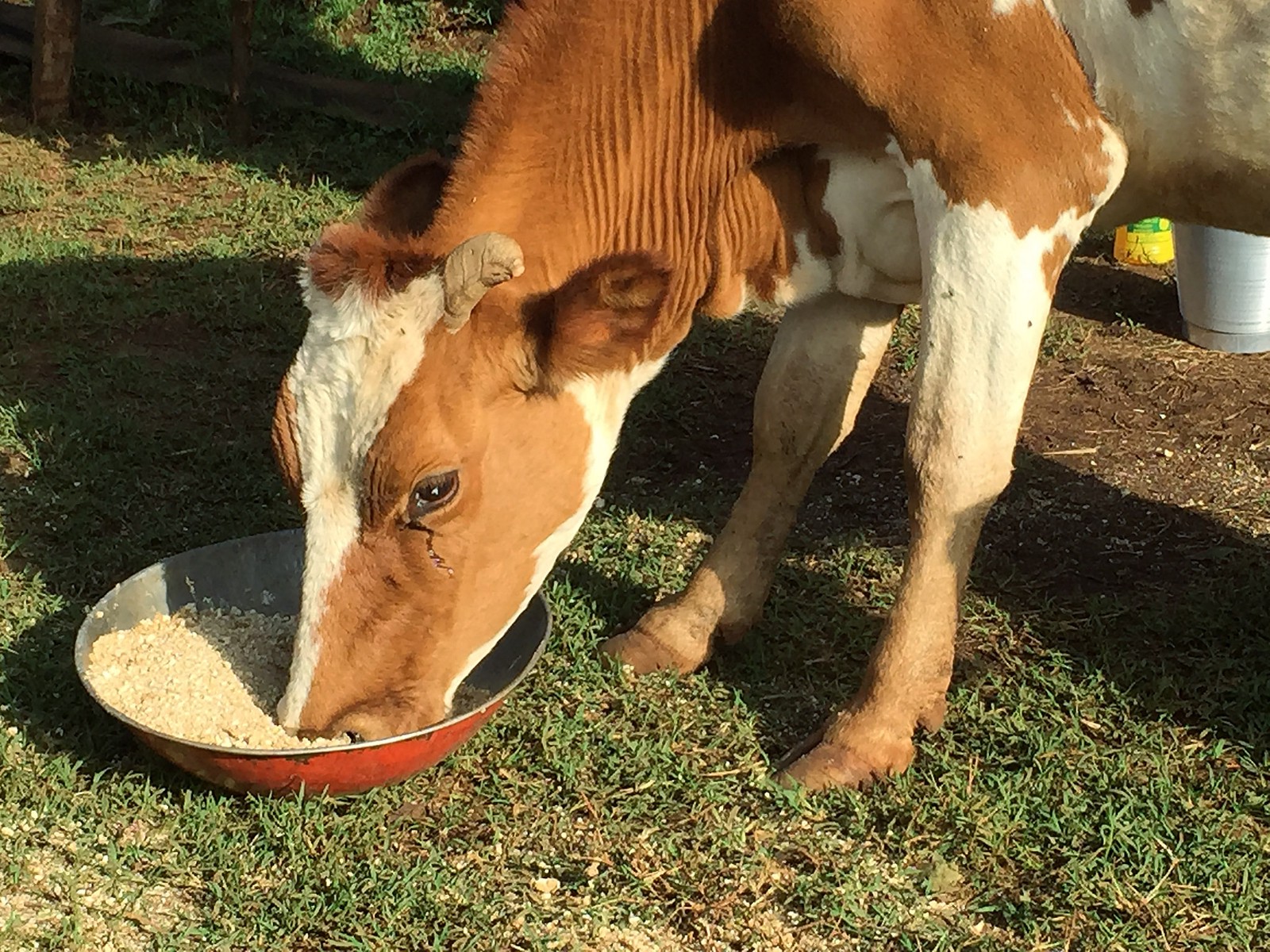
With the extra income, Noah and Irene now send all three of their children to school and have bought three more cows.
This week, the annual Feed the Future report will announce that 10 million farmers have been lifted out of extreme poverty through the initiative, a remarkable transformation for parents like Noah and Irene. The power of giving a hand-up — not just a hand-out — is the future of our nation’s development programs and I can’t wait to return to Eldoret to see the thriving dairy exchange.
Fighting Wildlife Trafficking and Terrorism
In April, our most recent delegation to Africa landed just eight days after the horrific attack at Garissa University College in Kenya, where 147 people were killed by militants from Al-Shabaab. This was a stark reminder of the instability, threats, and terrorism that permeates the region.
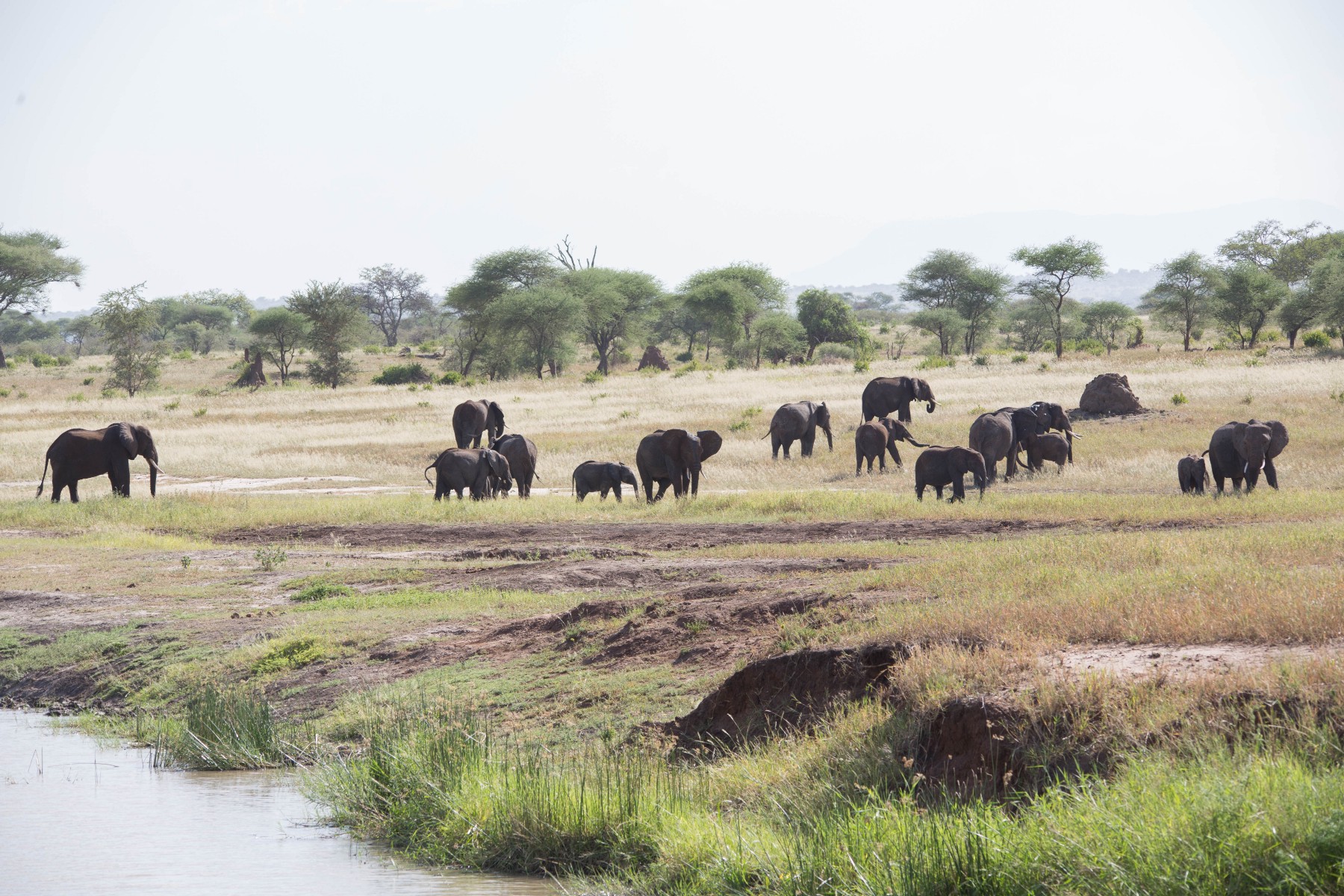
We learned that as much as 40 percent of Al-Shabaab’s funding comes from poaching of ivory elephant tusks.
In an effort to put a stop to the nearly $10 billion per year that is being funneled to terrorist and criminal networks through wildlife trafficking, I was well aware that Congress and the Administration have been increasing our State Department and USAID programs to combat this challenge.
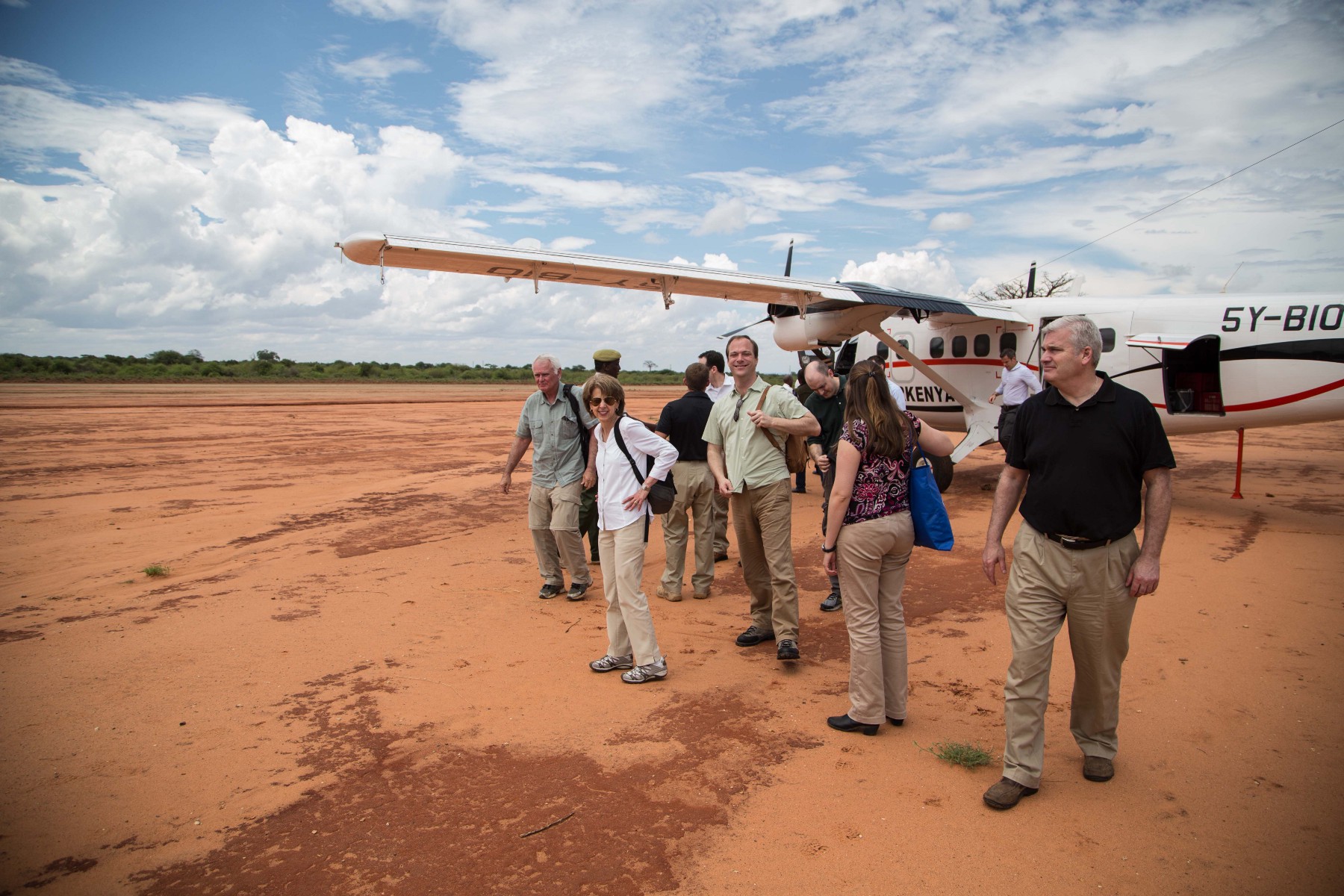
But it wasn’t until our small plane flight from Nairobi landed in Manyani that I understood the impact of these programs. Accompanied by my friend General Mike Hagee, a former Marine Corps Commandant, we visited an impressive program funded by the State Department: the Regional Rural Border Patrol Unit. We met with American security trainers working with law enforcement personnel from three countries — Kenya, Tanzania, and Uganda — who were participating in a five-week course to learn new skills to confront extremism and wildlife trafficking.
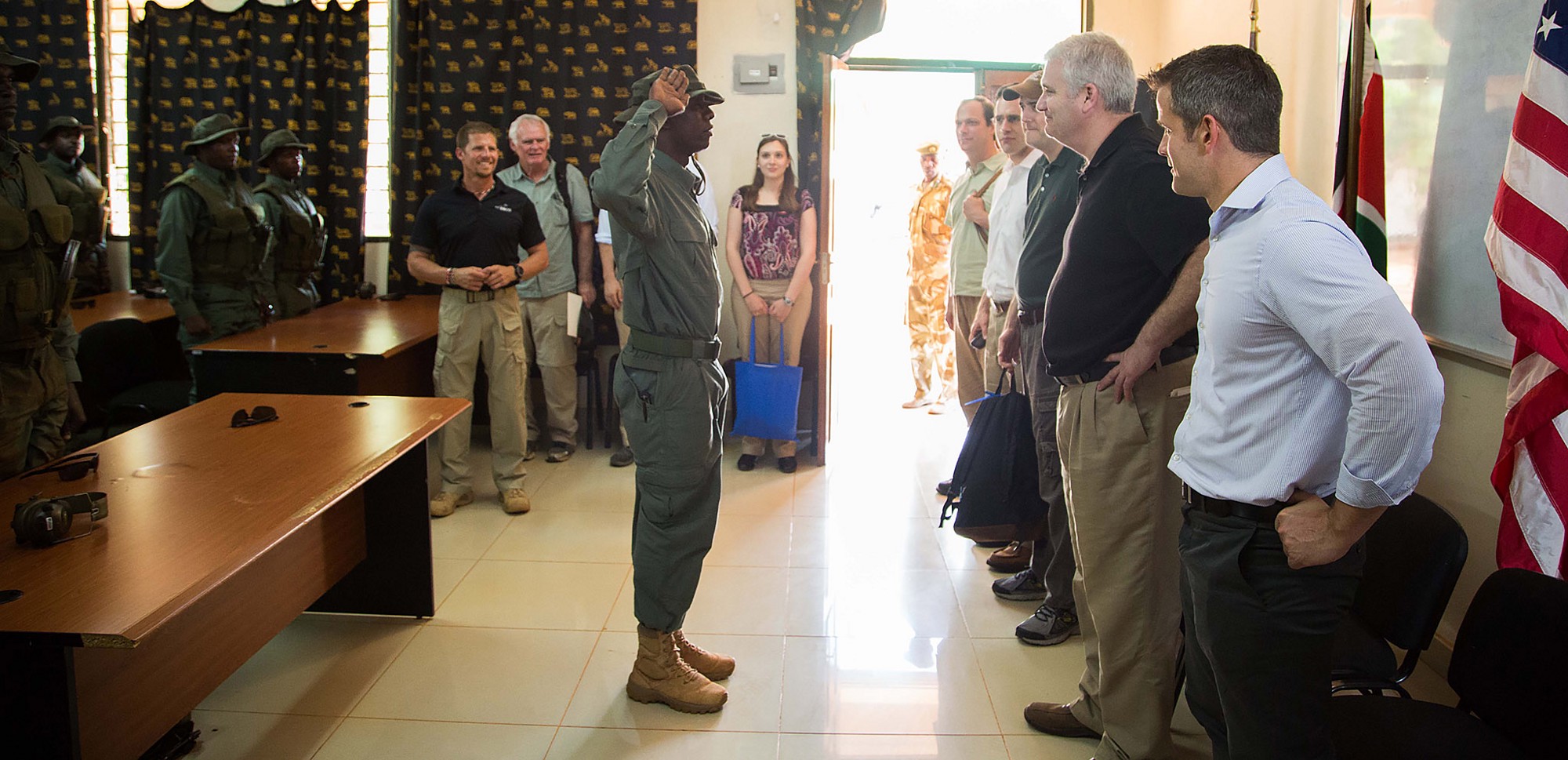
In addition to watching their morning drills, the men (and one woman) told us that they will return to their countries to train their fellow law enforcement personnel. It was a clear reminder of how our small investment can have a magnifying impact in fighting terrorism by partnering with our allies, and hopefully, avoiding American’s boots on the ground.
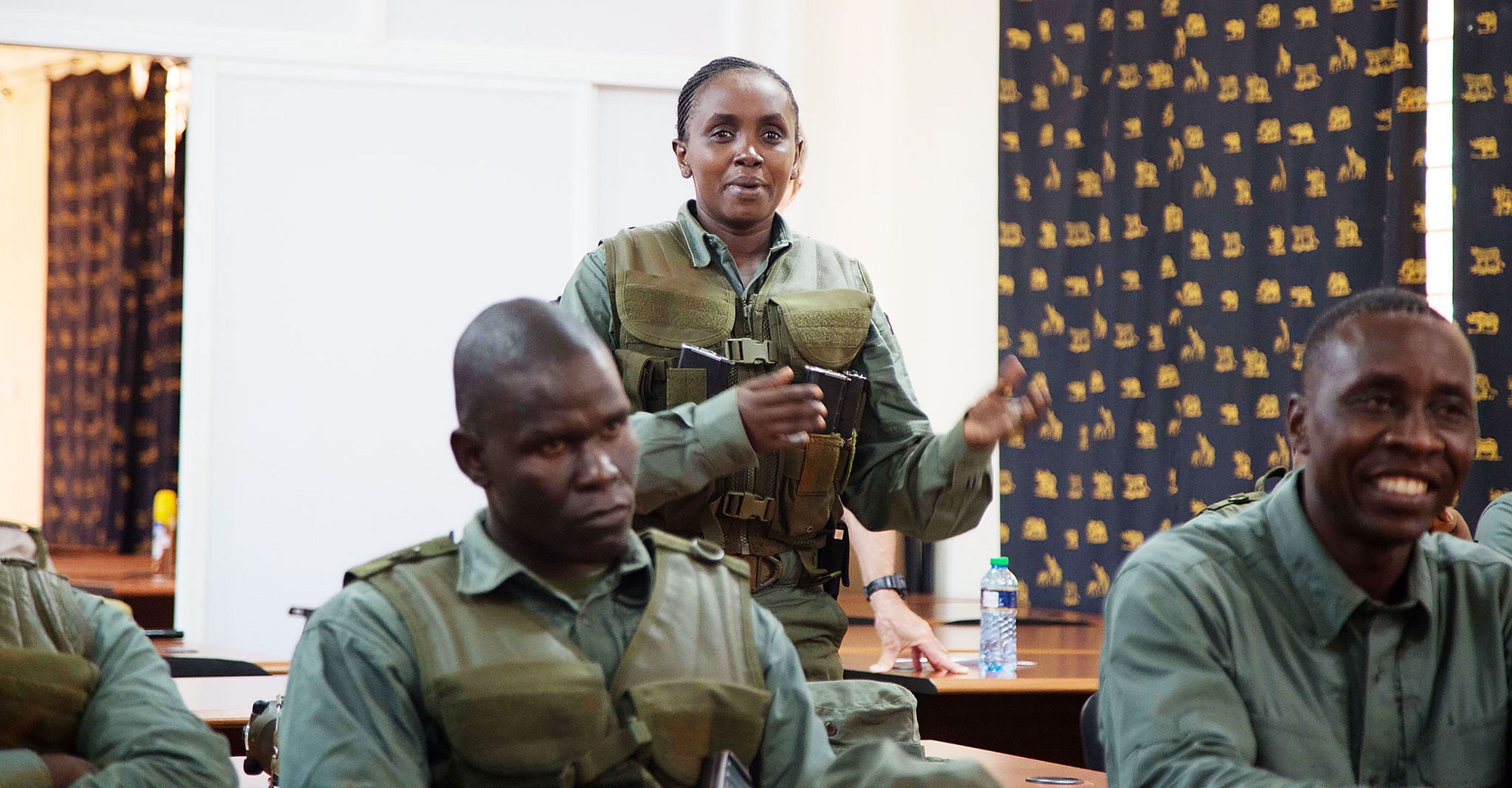
Lighting a Better Path Forward
My personal favorite may have been the late night visit to Emmanuel’s very modest home in a rural village outside Arusha, Tanzania. He proudly wanted to show us his single light bulb hanging from his ceiling, powered by a solar panel.
I am still smiling.
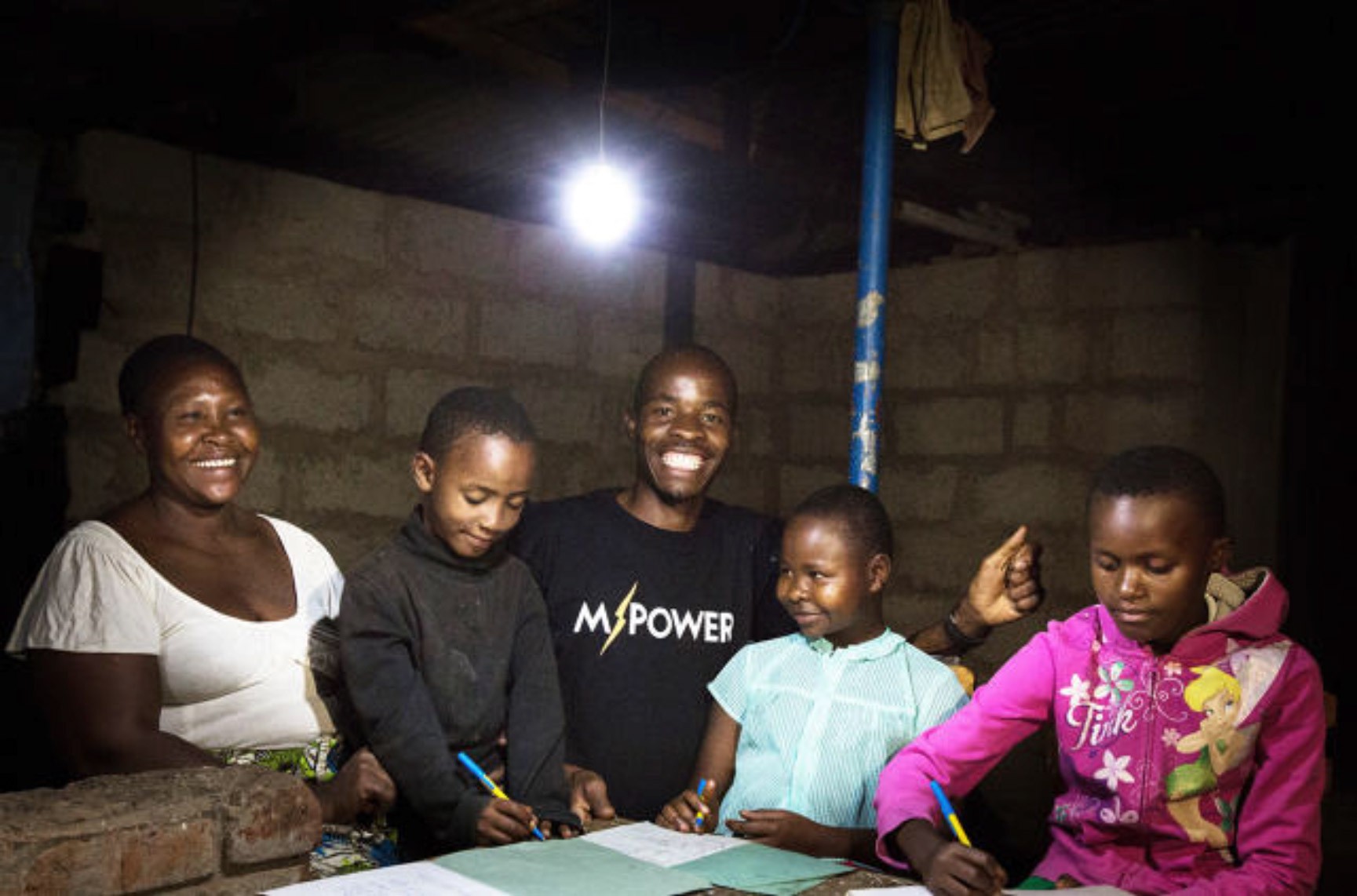
Earlier that day, I had visited Off-Grid Electric, an American-owned company often referred to as the “Google” of Tanzania because of its innovative solutions to energy problems. Off-Grid provides dependable and affordable solar-generated electricity to families, like Emmanuel’s, that can’t connect to the national power grid.

Off-Grid is part of our nation’s Power Africa initiative, a new model of development that is leveraging public-private partnerships. They received support from the Overseas Private Investment Corporation (OPIC) and USAID, and leveraged an initial $1 million U.S. government loan into $22 million in private capital.
In Sub-Saharan Africa, two-thirds of the population does not have access to sustainable electricity. So I asked Emmanuel how his new light bulb had changed his life and impacted his family. He proudly hugged his children tightly and shared:
“Now they can study at night and do their homework. Now they have hope and a future.”
That was the brightest spot of my trip.
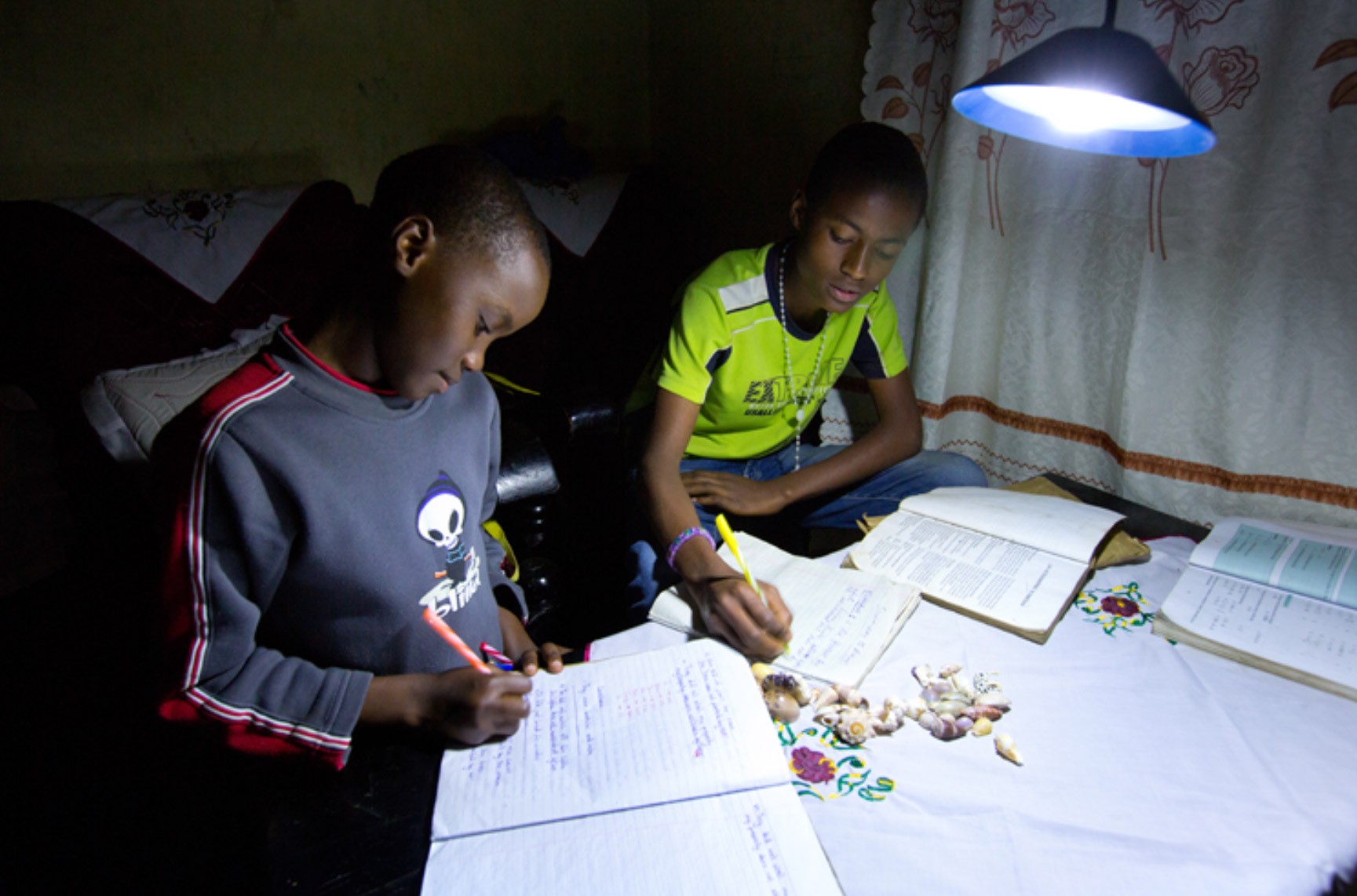
Witnessing the Impact of American Leadership
From seeing a young boy able to do his homework at night for the first time; to watching brave men and women perform tactical training to fight international terrorism; to hearing a mother’s pride at her ability to reliably feed her family, I experienced time and time again the power and impact of our new model of development and diplomacy.
President Obama, traveling with Congressional champions Senators Jeff Flake (R-AZ) and Chris Coons (D-DE), will see these and other inspiring stories during their Africa travels. These programs are a wonderful reminder that Americans can be proud that our investments in development and diplomacy are not only the right thing to do, but the smart thing to do to make the world a better, safer place.